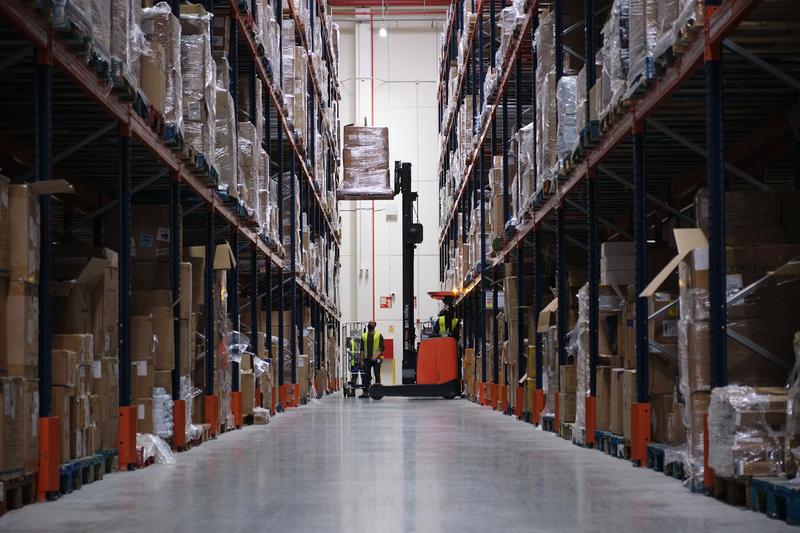 An employee arranges packages at a Cainiao Network logistics center in Guadalajara, Spain, in November. (MENG DINGBO / XINHUA)
An employee arranges packages at a Cainiao Network logistics center in Guadalajara, Spain, in November. (MENG DINGBO / XINHUA)
Cainiao Network, the smart logistics arm of e-commerce firm Alibaba Group, released a bevy of measures on Tuesday to address cross-border logistics bottlenecks held back by the current COVID-19 outbreak.
The portfolio of measures is introduced to tackle glitches in four key aspects of import and export, namely warehouses, Customs clearance, cross-border shipping and delivery, the company said in a release.
The move aims to ensure a stable and smooth global supply chain and to shore up foreign trade in an orderly manner, especially as vendors are prepping for the upcoming June 18 shopping festival, a midyear shopping gala embraced by many Chinese consumers and brands.
"Amid the uncertainties brought about by the pandemic, Cainiao will work with its logistics partners to leverage sea, land and air transportation capabilities, allowing goods by Chinese cross-border merchants to enter and leave the border smoothly," said James Zhao, general manager of Cainiao's global supply chain.
For goods to be imported via the Shanghai port, Cainiao will offer services to transfer them to Qingdao and Ningbo ports. It will also provide alternative air routes from overseas destinations to Chinese cities like Guangzhou, Shenzhen, Nanjing and Wuhan.
The company promised to coordinate with local Customs agencies to expedite Customs declaration procedures delayed by the pandemic and ensure the completion of the task within one to two days.
In light of the current hurdles in overland transportation caused by the local resurgence, Cainiao said it will help fleets obtain transportation permission and provide water transport in place of land transportation under certain circumstances.
It will also use its intelligent distribution system to allocate goods across various warehouses in the country to minimize risks such as a partial lockdown due to an emergency outbreak.
On the export front, Cainiao said it operated China-US sea freight with a shipping capacity of 3,000-4,000 twenty-foot equivalent units (TEUs) per month. Cainiao will prioritize its airline resources to export merchants.
Exporters who are affected by the pandemic and require cargo space can apply for Cainiao's services. Cainiao has aggregated over 3,600 trucking routes from East China and various districts to Shanghai port, offering guaranteed container services and air cargo capacities for merchants.
It promised to keep a close eye on updated epidemic prevention and control policies and offer the necessary passes for both the drivers and the vehicles needed for the transport.
Cainiao also helped smaller export merchants in Shanghai relocate their goods to a centralized warehouse in Yiwu, a city in Zhejiang province known as the cradle for small and medium-sized enterprises in China.
Skincare brand Biossance has felt the pinch of shrinking air freight capacity and rising costs overshadowed by the global impact of the pandemic, according to Kenny Wong, supply chain manager of the brand's Tmall Global flagship store.
"As we are busy preparing for the June 18 campaign, Cainiao has designed an optimized air route for us from Chicago to Wuhan or Guangzhou," Wong said. "The transport duration is somewhat similar to before the outbreak, but the cost is even lower."
China's foreign trade grew by 7.9 percent to 12.58 trillion yuan ($1.88 trillion) in the first four months of 2022, according to the latest data from the General Administration of Customs.
Exports over the period surged 10.3 percent year-on-year to 6.97 trillion yuan, while imports hit 5.61 trillion yuan, growing 5 percent on a yearly basis.


